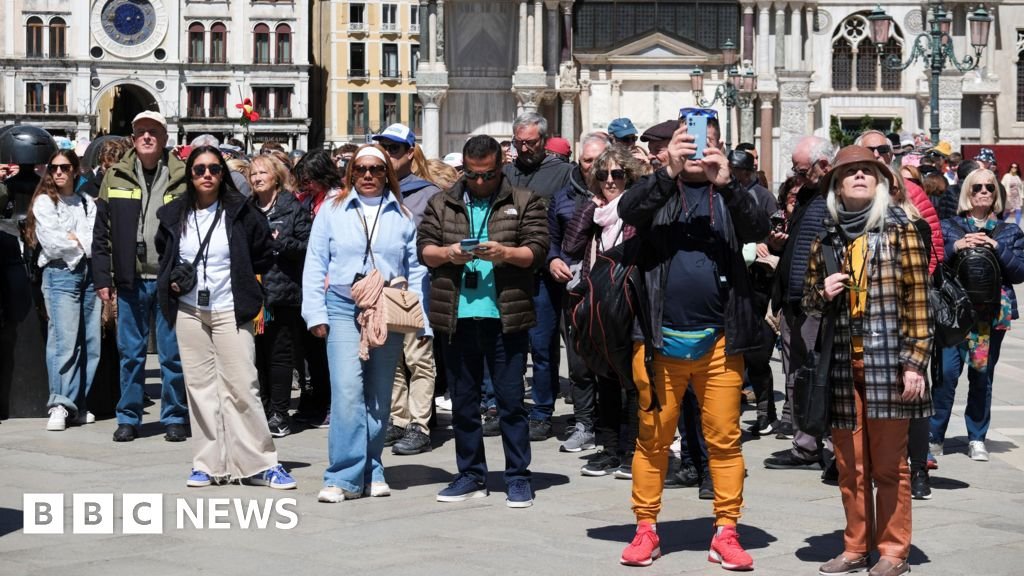The tax will apply every Friday to Sunday and public holidays from April 18 to July 27, 2025 for 54 days.
All visitors over the age of 14 will need to pay the fee on their phones and download a QR code to show inspectors who will be randomly checking people in common arrivals areas, such as the train station.
A person without a ticket risks receiving a fine.
As with the previous fee, people who have booked hotels and guesthouses will be exempt from the fee, as well as residents of the Veneto region, students of the University of Venice and those visiting relatives living in Venice.
“Venice has gone from being the city most prone and criticized for the phenomenon of overtourism to the city that reacts to this phenomenon most early and actively on the world stage,” said city councilor Simone Venturini.
According to Italian media, during the first eight days of this scheme in April, the Venice authorities collected the amount they expected to earn in three months.
By the end of the trial period in mid-July, the city had collected around €2.4m (£2m; $2.5m) in entrance fees.
But Mayor Brugnaro said he would have to wait for further analysis to see if the scheme was fully budgeted to break even.
The cost of the ticket booking platform and the communication campaign that followed the announcement of the initiative cost around 3 million euros, according to Italian media.
Venetian opposition councilor Giovanni Andrea Martini said in July that the entrance fee system was “failed” because it did not help distribute the flow of tourists visiting Venice.
At the time, Mr Martini also said the potential increase from €5 to €10 was “useless” and would simply “turn Venice into a museum”.
Last year, UNESCO said the city should be added to the list of world heritage sites in danger as the effects of climate change and mass tourism threaten to cause irreversible changes to it.
And in 2021 large cruise ships were banned from entering the historic center of Venice through the Giudecca Channel after the ship crashed into the harbor.
Critics have also argued that the ships cause pollution and erode the foundations of the city, which suffers from regular flooding.

